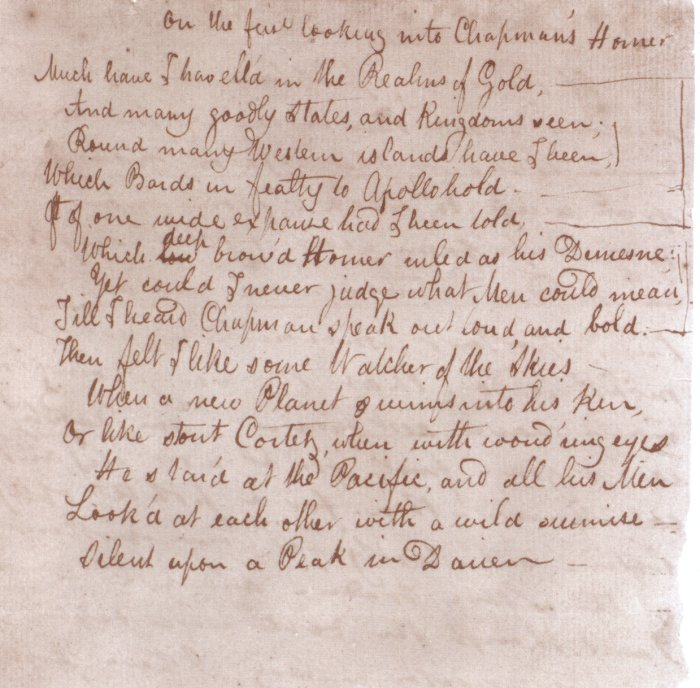On First Looking into Chapman’s Homer

Poem:
Much have I travell'd in the realms of gold,
And many goodly states and kingdoms seen;
Round many western islands have I been
Which bards in fealty to Apollo hold.
Oft of one wide expanse had I been told
That deep-brow'd Homer ruled as his demesne;
Yet did I never breathe its pure serene
Till I heard Chapman speak out loud and bold:
Then felt I like some watcher of the skies
When a new planet swims into his ken;
Or like stout Cortez when with eagle eyes
He star'd at the Pacific—and all his men
Look'd at each other with a wild surmise—
Silent, upon a peak in Darien.
Keats spent a night reading poetry with his friend Charles Cowden Clarke in the autumn of 1816. Cowden exposed Keats to some of the best sections from George Chapman's 17th-century translation of Homer's masterpieces, the Iliad and Odyssey. Keats was ecstatic with the work, and when Cowden abandoned him, he penned his poem as a tribute to Chapman. He left a copy of it on his friend's breakfast table the next day as a gift.
Keats describes in the poem the excitement he felt while listening to his friend Clarke read to him from Chapman's Homer. He compares his finding of the work, among other things, to the intense excitement experienced by an astronomer who discovers a new planet or by Cortez the first time he saw the Pacific from a peak in Central America. It should be recalled that Balboa, not Cortez, was the first European to see the eastern Pacific coast.
On December 1, 1816, The Examiner published the first edition of On First Looking into Chapman's Homer. It was later included in Keats' first collection of poetry, considered to be his best work.
Type: Petrarchan Sonnet
Published: 1816










